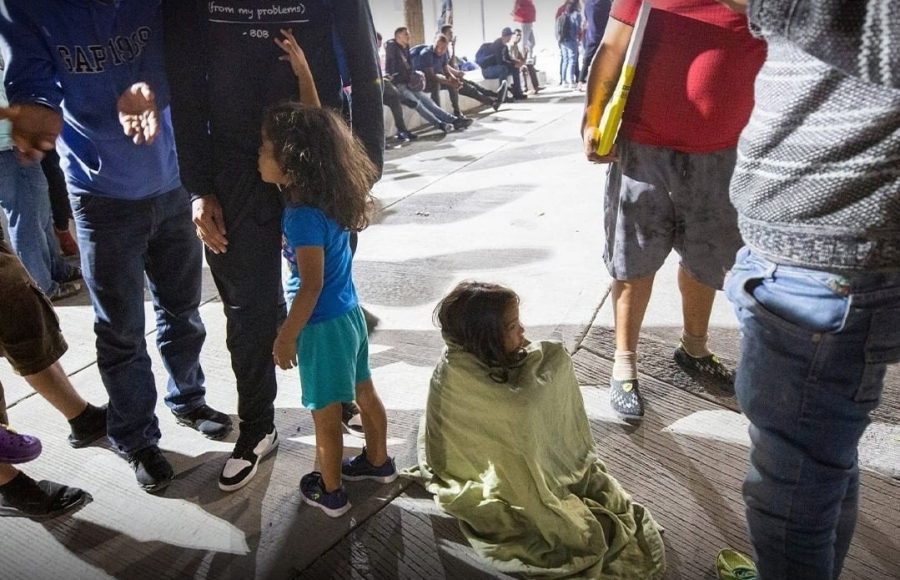Prioritizing Politics Over Humanitarians Crises
New York City stands at a moral and legal crossroads as an influx of migrants are stepping off buses from Texas and into New York homeless shelters, most of which are functioning at almost full capacity. More than 17,000 asylum-seekers have arrived in the city since the springtime, incentivizing NYC Mayor Eric Adams to declare a state of emergency last Friday, set to last for 30 days. Adams says the number of people flooding the already overwhelmed temporary housing “will surpass the highest number of people in recorded history in our city’s shelter system.” However, this humanitarian crisis goes beyond numbers and data. As is common with most issues in American society today, Democrats and Republicans are at odds over the correct and moral response to migrant housing, thus placing the semi-centrist NYC mayor in a blazing hot seat.
I agree with Mayor Adams’ reaction to the situation, as he has sought financial aid from the White House to build humanitarian response and relief centers around the city. These centers will lead to the construction of emergency housing in all five boroughs, which is likely to take some of the pressure off of the mayor. Additionally, Adams has implored Congress members to pass laws concerning a complete reconstruction of the immigration system, starting with the legalization of undocumented immigrants already living in the U.S.
American citizens and government representatives need to recognize that the responses to this humanitarian crisis were fully charged by political beliefs. The well-being of resource-deprived and homeless individuals that have been forced to leave their lives in Texas and find refuge here is far more critical than individual political opinions. Many of these migrants don’t know where their next meal is coming from or how to provide for their families financially, yet our country still seems focused on political agendas. The tension and fear triggered by this uncertainty is only worsening as the colder months arrive, seeing as there’s not enough clothing to adequately provide to the unsheltered.
It’s sickening to think that this significant human rights issue has been spun into a political debate. Even some large media corporations have objectified the migrants within their articles, such as CNN in an article released on Friday. Author Samantha Beech writes, “The migrants being offered the city-funded buses had been processed by Border Patrol and released in the community.” Though it may have been unconscious, this vernacular is degrading. By discussing the migrants as being “released” into a new community, the writer objectifies the migrants and implies they are nothing more than a nuisance, leaving out their human experiences and struggles.
Texas Gov. Greg Abbott’s bias is clear in his treatment of migrant issues. In response to the Biden administration’s immigration policies, Abbott bussed more than 11,000 migrants to the largest cities in the U.S. without considering how it would affect the communities involved. A CNN article explains that “the busing campaign has led to sparring between Abbott and Adams, whose administration has accused the governor of using human beings as political pawns.” Even though NYC is a sanctuary city, it cannot be expected to accommodate the influx of newcomers that have arrived over the past year without admonishing the Texas state government.
A solution that Adams has outlined includes building tent cities on Randall’s Island. However, this could upset the financial viability of the city since the issue of domestic homelessness remains a major concern. Homelessness in NYC has reached its highest point since the peak of the Great Depression in the 1930s according to the Coalition for the Homeless. It is estimated that the average length of stay in the shelter system is about a year and a half, which contributes to the great need for emergency housing. Considering that 11,000 homeless people are newcomers to the five boroughs, desperate measures are being sought out. Before the offer of Randall’s Island was on the table for debate, Orchard Beach in the Bronx transformed into a temporary placement last month to buy Adams some bargaining time with both the federal government and the state of Texas. Unfortunately, the intensifying concern about flooding in the area became a severe setback for the mayor and his administration.
Adams’ public plea for help has faltered in the political sphere since many politicians are focusing more on their political agendas than on the genuine concern for the welfare and health of migrants. The way in which individual political agendas can slow down necessary legislative action points to a clear systemic issue in our legislative and political framework.
Olivia Teare, FCRH ’26, is an anthropology major and peace and justice studies and linguistics minor from Duxbury, M.A.










































































































































































































